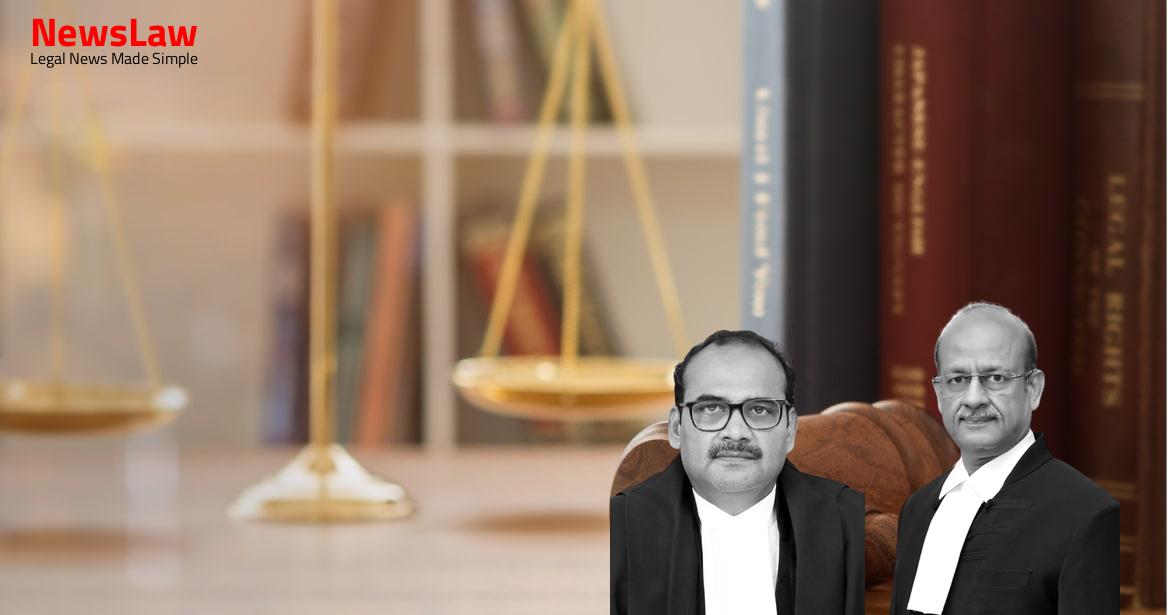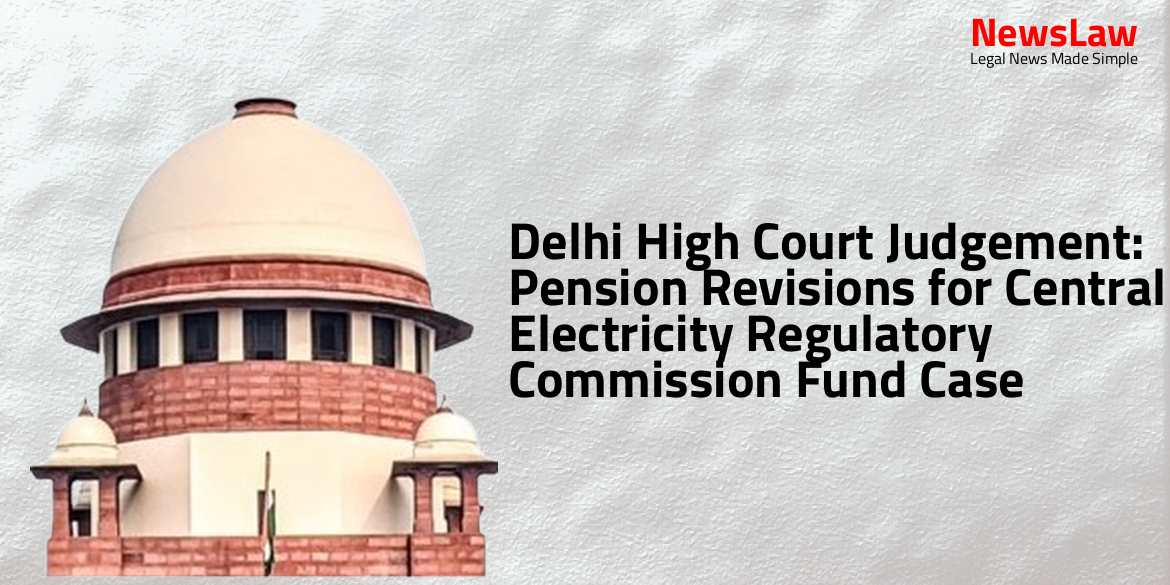In a landmark decision by the Supreme Court of India, the legal fiction created in the case of Ashish Agarwal has far-reaching implications for taxation law. The judgment harmonizes the Time Limitation Act with the Income Tax Act, providing relief and relaxation to both assesses and the Revenue. This decision sets a precedent in ensuring balance and equity in tax reassessment procedures, impacting numerous reassessment notices issued between 1 April 2021 and 30 June 2021.
Facts
- The Finance Act 2021 substituted the entire scheme of reassessment under Sections 147 to 151 of the Income Tax Act with effect from 1 April 2021.
- Section 148 mandates the assessing officer to initiate proceedings only based on prior information and with the prior approval of the specified authority.
- Section 148A requires the assessing officer to provide an opportunity of being heard to the assessee before deciding to issue a reassessment notice under Section 148.
- Section 148A requires the assessing officer to conduct any enquiry, if required, with the prior approval of the specified authority, provide an opportunity of hearing to the assessee by serving a show cause notice with the prior approval of the specified authority, consider the reply furnished by the assessee in response to the show cause notice, and decide on the basis of available material, including the reply of the assessee, whether or not it is a fit case to issue a notice under Section 148 by passing an order.
- The time limit under Section 149 has been reduced from four years to three years from the end of the relevant assessment year for all situations.
- Assessments can be reopened beyond three years but within ten years from the end of the relevant assessment year if the income chargeable to tax which has escaped assessment amounts to or is likely to amount to Rupees fifty lakhs or more.
- The Revenue issued reassessment notices under a ‘bona fide belief’ that the amendments may not have been enforced.
- Reassessment notices issued under Section 148 of the old regime were deemed to be notices issued under Section 148A(b) of the new regime.
- The High Courts quashed reassessment notices issued between April 1, 2021, and June 30, 2021, under the old regime due to the substitution of Sections 147 to 151 by Finance Act 2021.
- The Central Government could not re-activate pre-existing law, and the new regime was meant to protect the rights of the assesses.
- The benefit of new provisions was made available for past assessment years if the Section 148 notice was issued on or after April 1, 2021.
- All reassessment notices issued after April 1, 2021, should have been in accordance with the new regime.
- An Instruction was issued for the implementation of the decision in Union of India v. Ashish Agarwal, where the reassessment notices under the old regime were deemed to have been issued under Section 148-A(b) of the new regime.
Also Read: Equitable Resolution for Students: Shri Guru Ram Rai University vs. Uttarakhand College
Issue
- Whether TOLA and notifications issued under it will also apply to reassessment notices issued after 1 April 2021
- Whether the reassessment notices issued under Section 148 of the new regime between July and September 2022 are valid
Also Read: Anticipatory Bail Application in Different Cases: Landmark Judgment by the Supreme Court of India
Arguments
- Mr. N Venkataraman argued on behalf of the Revenue
- TOLA was introduced by Parliament as a standalone legislation
- Purpose of TOLA is to provide relief and relaxation to both assesses and Revenue during COVID-19
Also Read: Supreme Court of India Dismisses Writ Petition on Arms Export to Israel
Analysis
- Section 3(1) empowered the Central Government to extend the time limit beyond 31 March 2021 by notification.
- The first proviso to Section 149(1)(b) is provided.
- Section 2(1)(b) defines ‘specified Act’ to include the Income Tax Act.
- Section 3(1) of TOLA extended the time limit for completion or compliance of actions under the ‘specified Act’ from 20 March 2020 to 31 December 2020, to 31 March 2021.
- The legal fiction created in Ashish Agarwal (supra) deemed reassessment notices issued under the old regime as show cause notices under the new regime.
- This legal fiction allowed the Revenue to continue the reassessment process initiated under the old regime from 1 April 2021 to 30 June 2021.
- However, the reassessment notices issued in July to September 2022 under the new regime are beyond the extended time limits under the Income Tax Act read with TOLA.
- Ashish Agarwal (supra) cannot be interpreted to exclude the entire period from April 2021 to September 2022.
- After the creation of the legal fiction, show cause notices issued between 1 April 2021 and 30 June 2021 were deemed to have been stayed until the relevant information was provided to the assesses.
- TOLA did not amend Section 149 of the Income Tax Act but had to be considered in conjunction with Section 149 to determine the time limit for issuance of notices.
- The purpose of TOLA was to provide relaxation of time limits for completion or compliance of actions falling within the specified period due to the COVID-19 pandemic.
- The interface between TOLA and the Income Tax Act post-1 April 2021 required a harmonious reading to give effect to both legislative intents.
- The directions issued by the Court in Ashish Agarwal (supra) applied specifically to reassessment notices issued between 1 April 2021 and 30 June 2021 under the old regime.
- The legal fiction allowed both assesses and the Revenue to benefit from the consequences of transforming reassessment notices to show cause notices under the new regime.
- The jurisdiction under Article 142 is meant to supplement the existing legal framework to achieve complete justice between the parties.
- The Court upheld the judgments of the High Courts and deemed the notices issued under the old regime as show cause notices under the new regime.
- The legal fiction created was to provide benefit to the reassessment conducted for past periods.
- The purpose of the legal fiction was two-fold: to avoid further appeals by the Revenue on the same issue and to balance the equities between the Revenue and the assesses.
- The direction applied PAN INDIA and was specifically mentioned to cover various categories of cases.
- The legal fiction was created to ensure the benefit of the new regime for the reassessment notices issued under the old regime.
- The legal fiction was created to avoid further appeals and to balance the equities between the Revenue and the assesses.
- The scope of the directions applied PAN INDIA and covered a significant number of reassessment notices issued under the old regime.
- The reassessment notices beyond prescribed time limits were declared invalid for being time-barred.
- The Court balanced the equities between the Revenue and the assesses by giving effect to the legislative scheme of reassessment as contained under the new regime.
Decision
- After 1 April 2021, the Income Tax Act has to be read along with the substituted provisions
- TOLA will continue to apply to the Income Tax Act after 1 April 2021 if any action or proceeding specified under the substituted provisions of the Income Tax Act falls for completion between 20 March 2020 and 31 March 2021
- Section 3(1) of TOLA overrides Section 149 of the Income Tax Act only to the extent of relaxing the time limit for issuance of a reassessment notice under Section 148
- TOLA will extend the time limit for the grant of sanction by the authority specified under Section 151
- The directions in Ashish Agarwal (supra) will extend to all the ninety thousand reassessment notices issued under the old regime during the period 1 April 2021 and 30 June 2021
- The time during which the show cause notices were deemed to be stayed is from the date of issuance of the deemed notice between 1 April 2021 and 30 June 2021 till the supply of relevant information and material by the assessing officers to the assesses in terms of the directions issued by this Court in Ashish Agarwal (supra), and the period of two weeks allowed to the assesses to respond to the show cause notices
- The assessing officers were required to issue the reassessment notice under Section 148 of the new regime within the time limit surviving under the Income Tax Act read with TOLA
Case Title: UNION OF INDIA Vs. RAJEEV BANSAL (2024 INSC 754)
Case Number: C.A. No.-008629-008629 – 2024



